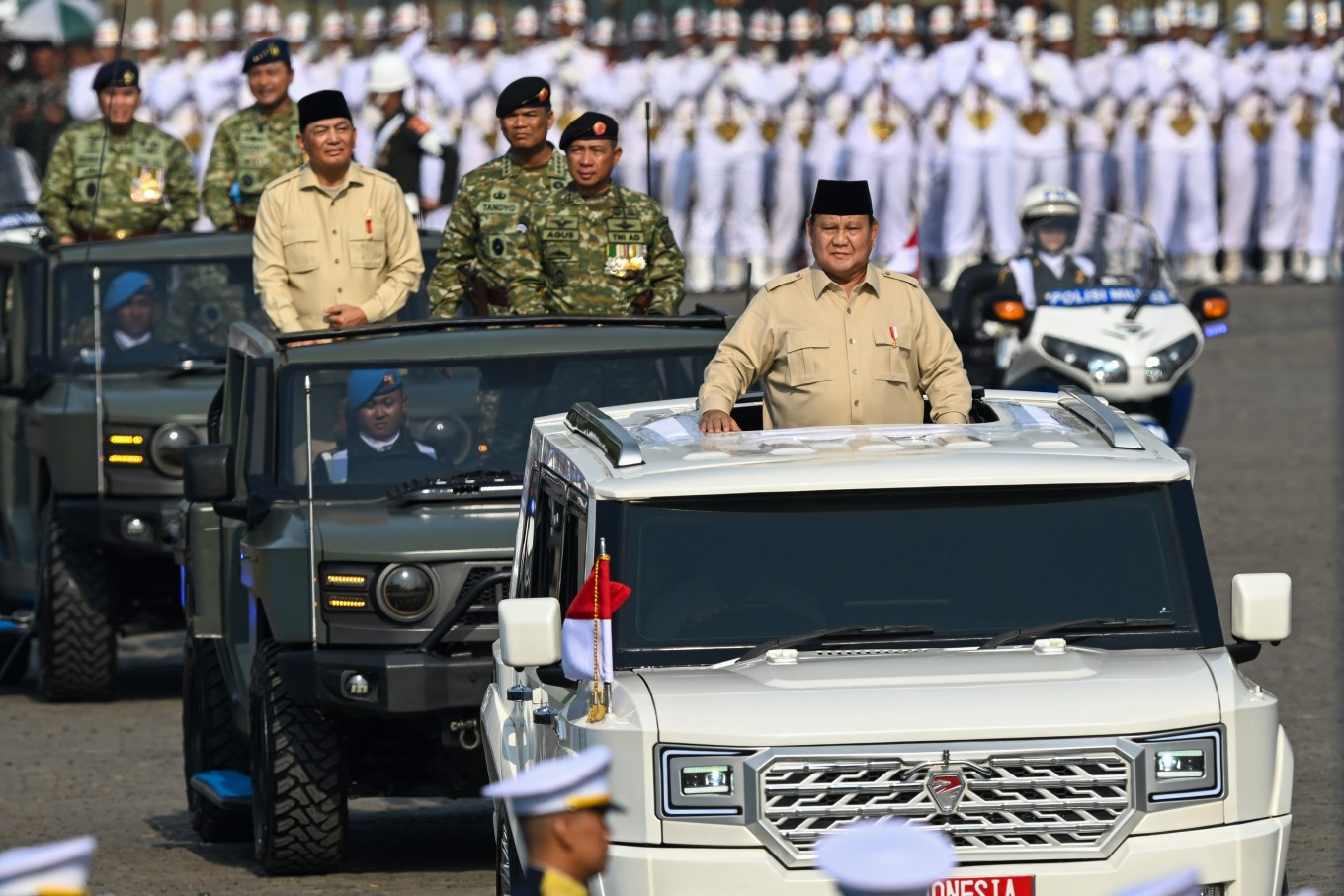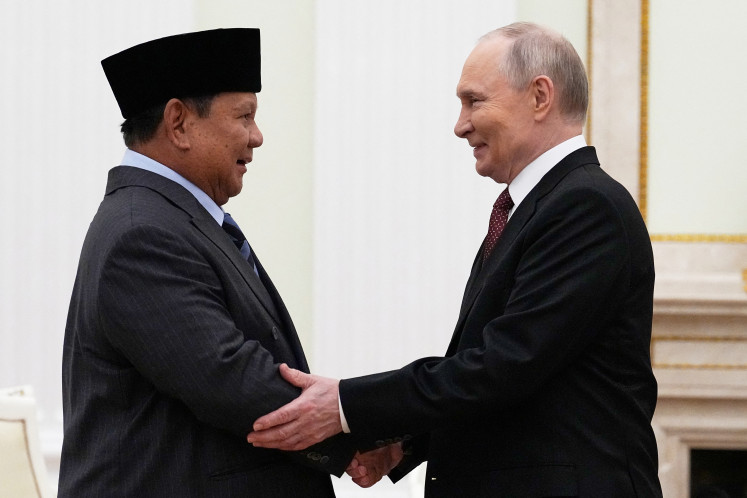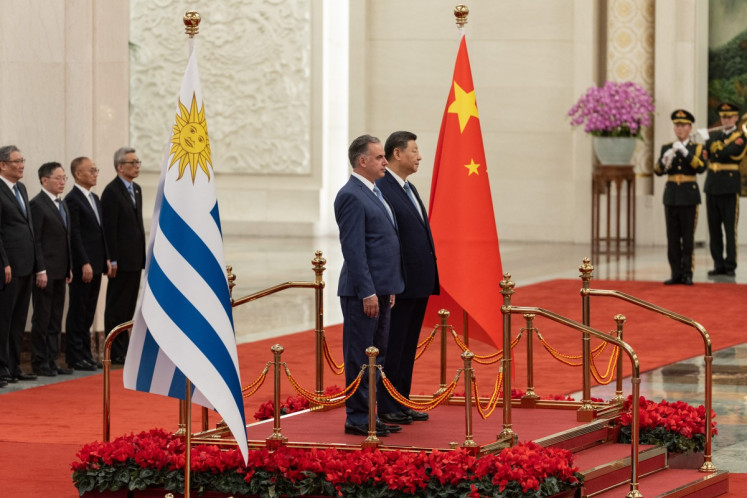Popular Reads
Top Results
Can't find what you're looking for?
View all search resultsPopular Reads
Top Results
Can't find what you're looking for?
View all search resultsAnalysis: Prabowo's national car: Industrial renaissance or personal ambition?
Change text size
Gift Premium Articles
to Anyone
 Patriotic pride: President Prabowo Subianto (front), accompanied by Defense Minister Sjafrie Sjamsoeddin (left, second row), Indonesian Military (TNI) commander Gen. Agus Subiyanto (right, second row) and other military leaders, inspects forces from his presidential vehicle in October ahead of a ceremony to celebrate the 80th anniversary of the TNI at the National Monument (Monas) complex in Central Jakarta. (Antara/Fauzan)
Patriotic pride: President Prabowo Subianto (front), accompanied by Defense Minister Sjafrie Sjamsoeddin (left, second row), Indonesian Military (TNI) commander Gen. Agus Subiyanto (right, second row) and other military leaders, inspects forces from his presidential vehicle in October ahead of a ceremony to celebrate the 80th anniversary of the TNI at the National Monument (Monas) complex in Central Jakarta. (Antara/Fauzan)
P
resident Prabowo Subianto, who often arrives at the presidential office in a locally produced Maung vehicle, has renewed his promise to create Indonesia's first official national car within the next three years. Whether he can succeed where his predecessors failed remains uncertain, as both Soeharto and Joko "Jokowi" Widodo saw their own national car dreams fade due to political and economic missteps.
In a recent cabinet meeting, Prabowo ordered his ministers to begin using Maung vehicles, manufactured by the state-owned defense company PT Pindad, as their official cars. Over a hundred units have reportedly been ordered with approval from Finance Minister Purbaya Yudhi Sadewa. The president also said he has allocated funds and land for future factories to realize his ambitious industrial vision.
The decision to entrust PT Pindad with the project has raised eyebrows, with critics questioning whether this is another case of channeling lucrative state projects to military-linked entities. As defense minister under Jokowi, Prabowo worked closely with PT Pindad to produce military vehicles and equipment for the Indonesian Military (TNI).
Now, as president, his affinity for the military has become even more apparent. His first year in office has been marked by policies expanding military roles in civilian affairs, from revising the controversial military law to allowing active-duty officers to hold civilian posts and assigning troops to assist in farming and food distribution. PT Pindad's central role in the car project reinforces perceptions of a deepening militarization of his administration.
Yet, a national car project should aim to serve the public interest, not personal or institutional loyalty. PT Pindad has yet to release Maung for public sale, but one unit reportedly costs around Rp 600 million (US$36,000), or twice the average amount a middle-class family spends on a car. For the project to succeed, the vehicle must be both reliable and affordable. Otherwise, it risks becoming just another vanity project for the elite, detached from the realities of ordinary Indonesians who continue to buy cheaper, imported alternatives.
The numbers also paint a sobering picture. According to the Association of Indonesia Automotive Industries (Gaikindo), Indonesia's car ownership ratio stands at just 99 cars per 1,000 people, meaning fewer than 10 percent of Indonesians own a vehicle.
Prabowo's national car dream carries echoes of past failures. During Soeharto's New Order, the Maleo project led by then–research and technology minister B.J. Habibie promised a locally made affordable car, but the plan was derailed in 1996 when Soeharto handed control to his son Tommy Suharto's PT Timor Putra Nasional. Tommy imported and rebranded South Korean cars instead, leading Japan to file a World Trade Organization complaint against Indonesia in 1997 for unfair competition.


















